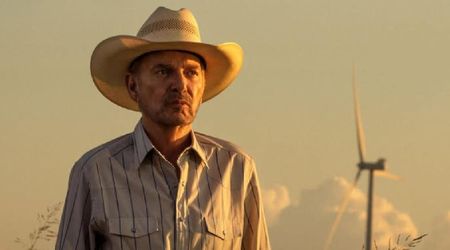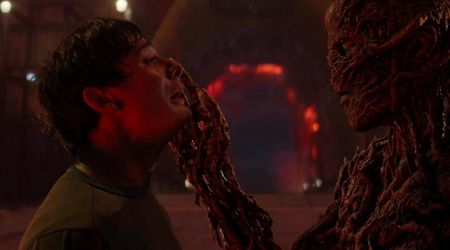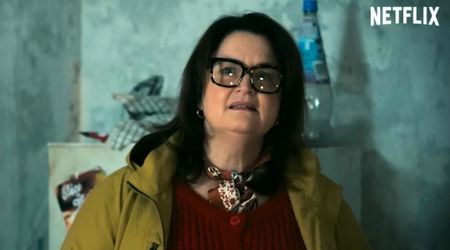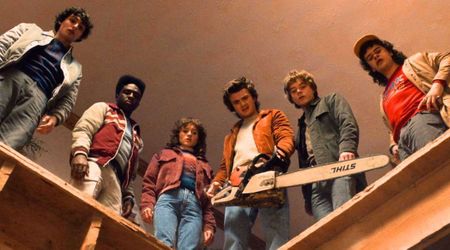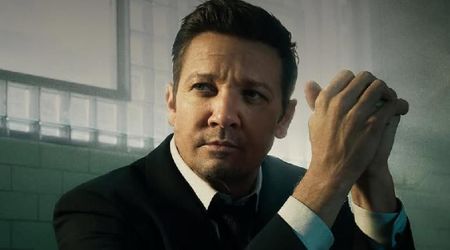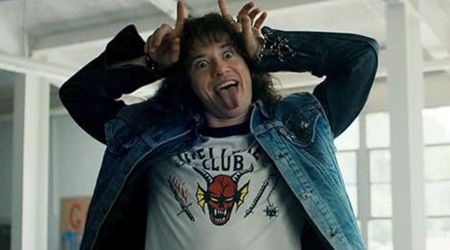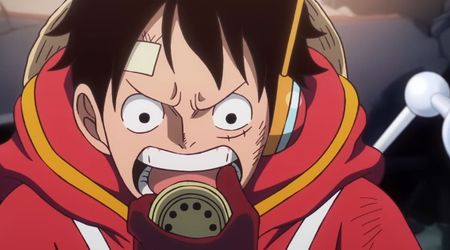'Strange Angel' episode 05: Dreams and hallucinations divert us from the already crawling plotline

'Strange Angel,' the new show on CBS All Access that brings to screen the curious, but very real story of Jack Parsons, the pioneer of rocketry by day and a secret occultist by night. With episode five, titled 'Dance of the Earth,' we are now at the half-way mark of the first season of the show and as we raised concerns in the review of episode four, the show continues to stick to its deliberate pace, letting the plot take a back seat as we delve deeper into the drama between the characters.
The real life story of Parsons is one that can be labeled stranger than fiction. In the words of Parsons' biographer George Pendle (whose book of the same name serves as the inspiration for the show), “By day he built rockets for the government, by night he emerged from a coffin to perform sex magic with his followers.” Historical fact tells us that this was a man who straddled the boundaries of genius and madness, of science and science fiction, while living an illustrious life that included a brief friendship with Scientology founder L. Ron Hubbard and joining Aleister Crowley's 'Thelema' cult before dying at the young age of 37 in a chemical explosion.
There's enough and more material for several seasons to unfold. Yet, 'Strange Angel' chooses to take its own sweet time, packing in historical references and allegories to Orson Welles and Igor Stravinsky (most of the episode names are named after movements of 'The Rite of Spring') while paying careful attention to detail to the historically accurate sets and the socio-political settings of the World War II era.
In episode five, we get to see more groundwork being laid for the plot to unfold. But whereas the previous episodes did it with a focus on the interplay between characters, in this episode, we dive straight into the minds of Jack and his renegade occultist neighbor Ernest thanks to a psychedelic experience the two share in the middle of the Californian desert. What was supposed to be a double date camping trip for next door neighbors Parsons and the Donovans turns out to be a life-changing drug-fueled escapade. As always, nothing is what it seems in 'Strange Angel' and there's always an ulterior motive lying under the surface.
Helmed in by showrunner David Lowery ('Ghost Story'), the episode continues the trend of flirting with dream sequences to sound out Jack's mind, but this time it goes all out as we are privy to a full-blow peyote trip complete with psychedelic distortions and sprawling shots of the Californian desert that are better suited for the big screen than a TV show.
The episode opens on the day Jack's team at CalTech is set to test the prototype of their first rocket engine, the 'GALCIT 1'. But Jack's intuition tells him something is wrong and he refuses to attend the demonstration, instead deciding to join Ernest and his wife Maggie on a camping trip to Joshua Tree National park in search of a rare 'Moonflower' that blooms once in three years under a fool moon.
Jack and Susan finally catch a break as they dance around the campfire and indulge in some much-needed revelry as they take a break from their everyday struggles. The crux of the episode unfolds after Ernest offers Jack three swigs of a mysterious drink that he later reveals is Peyote, what the Nauhautls call "the divine messenger."
The cinematic treatment given to the drug-fueled trip that Jack and Ernest have tells us a lot about their psyche. Jack is initially unable to handle the substance, throws up, punches Ernest in the face and drives away. But in a flash, we are sucked into Jack's trip as his car is magically transported to the surface of the moon.
There is some important foreshadowing in this hallucinatory sequence. For starters, Jack meets his father who in the middle of his riddle-like conversation with Jack and asks for a lighter to light his cigarette. Jack complies only to realize there is no oxygen on the moon. But his father snaps his finger and the lighter flicks on with a steady flame.
The more important revelation is Jack's vision of the Apollo space shuttle, resting grandly in Tranquility Base. The scene is one of the show's cinematically finest, with composer David Hart's swelling orchestral score complementing the scene perfectly.
Indeed, without Parsons' prototype of the liquid propelled rocket engine, the moon landing would never be possible. Interestingly, the plaque on the rocketship reads 'GALCIT 52' and not Apollo, convincing Jack that the 52nd prototype of the rocket would be the one that finally breaks through - something that he tells a dejected Richard Onsted with great conviction later in the episode after their first prototype blows up just as Jack predicted.
Meanwhile, Ernest battles with himself to come to terms with his homosexuality and in a scene rife with metaphors, witnesses the blooming of the 'moonflower' in the early hours of the dawn for a few seconds before it wilts away. When the 'trip' comes to an end, the two former frenemies now turned thick friends embrace each other in a great cathartic release.
A particular peeve I had with this episode (and perhaps the last episode as well) is the lack of exploration of Susan's character. While the show initially focused heavily on Susan's constant struggles of adhering to a conservative Catholic society, the later episodes often see her talking mostly about Jack as we see Bella Heathcote's character slowly lapse into the archetype of the dutiful wife. There is but one scene where only the two women, Susan and Maggie (Ernest's wife) share the screen, but even then they are talking about their husbands.
Susan lets slip that Ernest took them to one of the Thelema gatherings, which Maggie then confronts Ernest with, raising tensions in their relationship. But I can safely say that this episode would fail the Bechdel test and that's a shame considering Susan's character showed a lot of promise for deeper exploration early on in the show.
For a show that deals with Jack and his dual life split between science and the occult, we haven't seen much of either yet. With half the first season now behind us, we are now very familiar with Jack's psyche explored through a string of dream sequences and flashbacks. While all we've seen of the 'sex magic,' so far, are but a few brief shots of ritualistic nudity and framed photos of Aleister Crowley, nothing significant has been given away yet and it might prove testing on the audience to follow through if the show doesn't cut to the chase soon enough.
That leaves us with the rocketry and the engineering which again is explored through the lens of the interpersonal tensions between thick friends and now research partners at Caltech, Jack and Richard.
It’s not easy to substantiate why 'Strange Angel' needs to give Jack’s frustrations and pontificating about the future so much time when there’s a much more interesting story waiting to be told elsewhere. It might be more true to his life and times, but as long as the show is trying to mine that life for drama, it might as well cut to the chase and let the audience have what they've been patiently waiting for - a confounding story of science, dreams and sex magick.
'Strange Angel' is currently streaming on CBS All Access. New episodes are out every Thursday.

